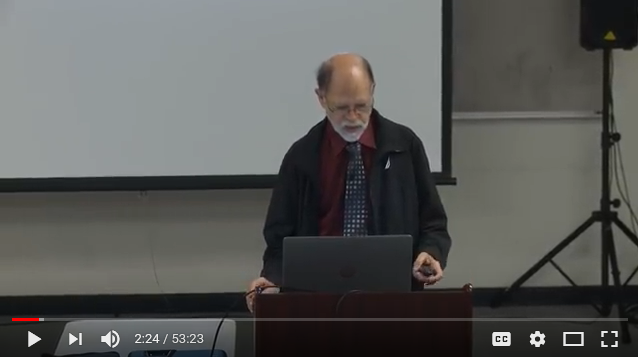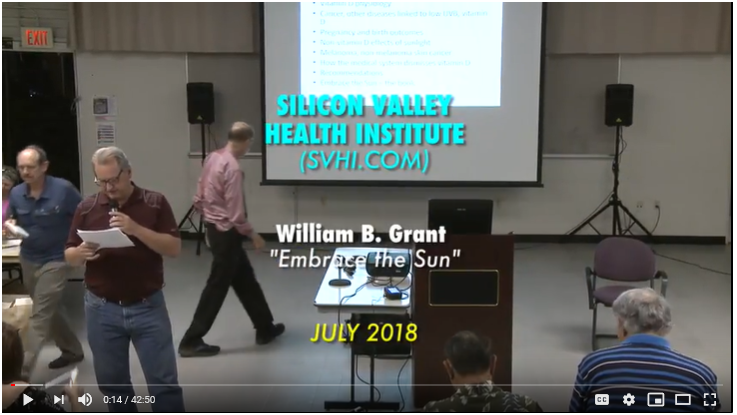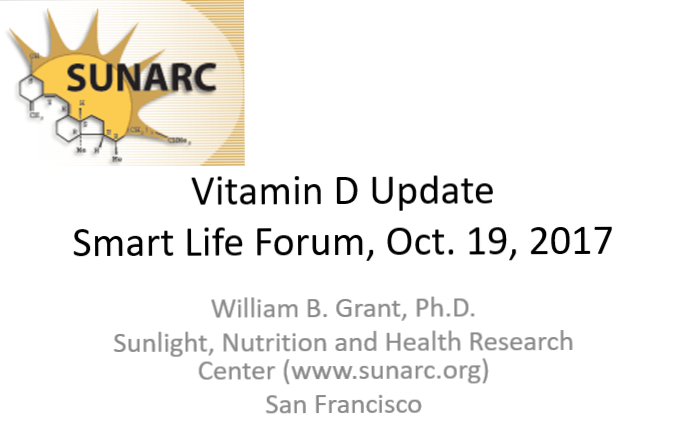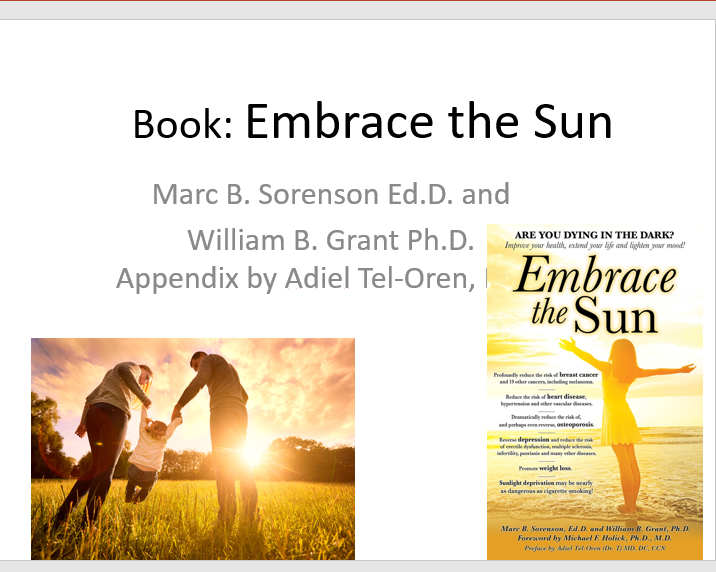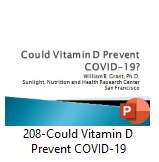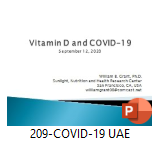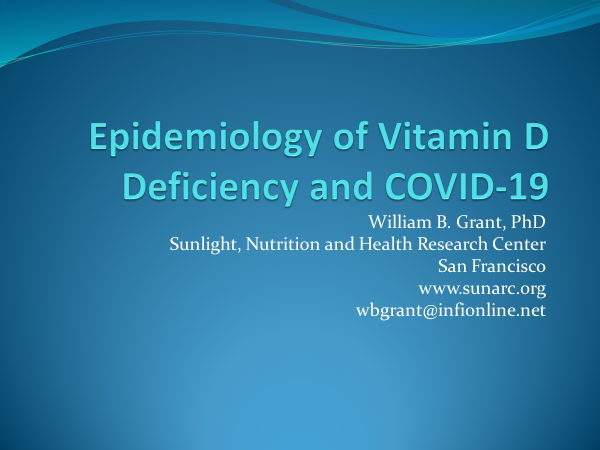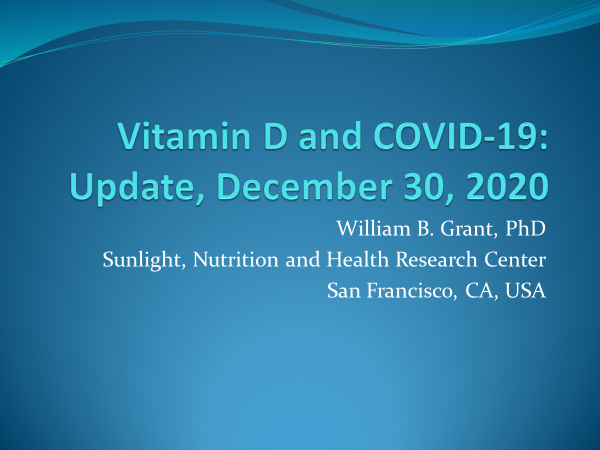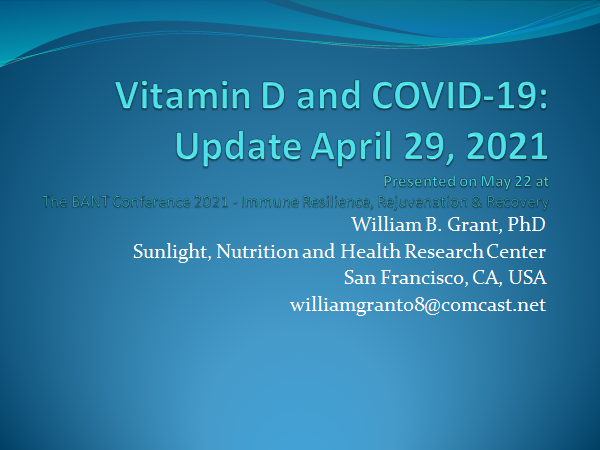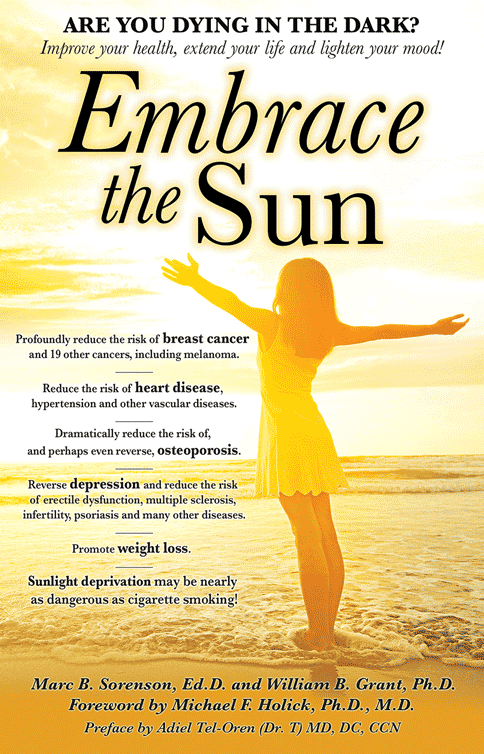UV Exposure and Disease Correlation
The maps below were used to determine how UVB exposure and vitamin D affect risk of cancer incidence and death as described in the Word document Ultraviolet B Exposure, Vitamin D, and the Risk of Cancer. |
 UVB Exposure, Vitamin D, and the Risk of Cancer |
click on the thumbnail for larger view.
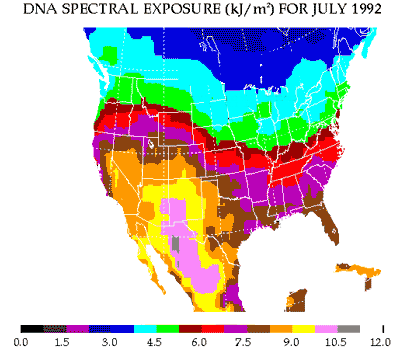
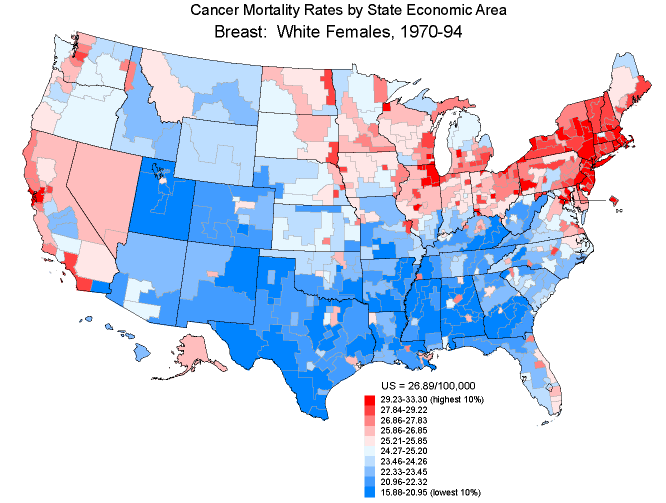
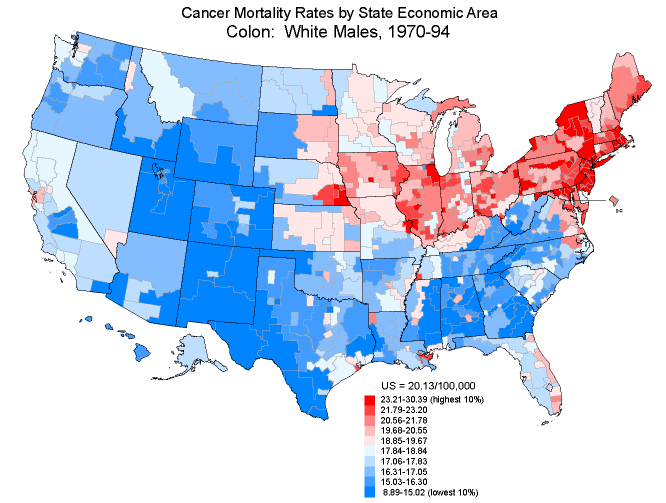
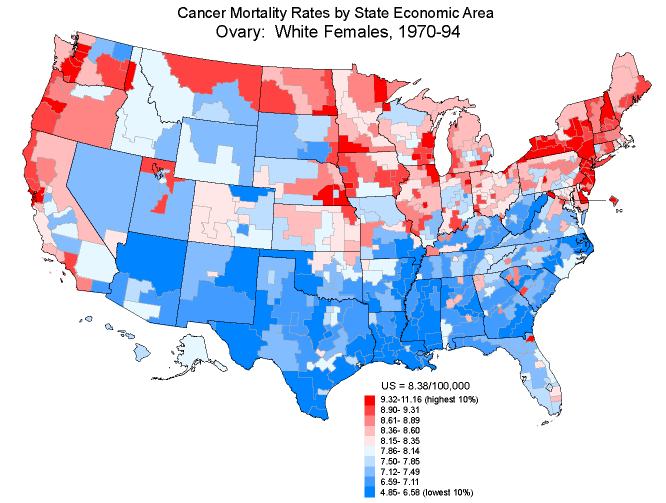

|

|

|

|
| UV Exposure by Geography | Breast Cancer Mortality Rates by Geography | Colon Cancer Mortality by Geography | Ovarian Cancer Mortality by Geography |
COVID-19 and Vitamin D
Over 100 Sientists, Doctors, and Leading Authorities Call For Increased Vitamin D Use To Combat COVID-19
https://vitamindforall.org/letter.html
Grant WB, Lahore H, McDonnell SL, Baggerly CA, French CB, Aliano JA, Bhattoa HP. Evidence that vitamin D supplementation could reduce risk of influenza and COVID-19 infections and deaths. Nutrients 2 April 2020, 12, 988. https://www.mdpi.com/2072-6643/12/4/988
Grant WB, Baggerly CA, Lahore H. Reply: “Evidence that Vitamin D Supplementation Could Reduce Risk of Influenza and COVID-19 Infections and Deaths”. Nutrients 2020, 12(6), 1620; https://doi.org/10.3390/nu12061620
Mercola J, Grant WB, Wagner CL. Evidence Regarding Vitamin D and Risk of COVID-19 and Its Severity. Nutrients 2020, 12, 3361. https://www.mdpi.com/2072-6643/12/11/3361
Grant WB, Lahore H, Rockwell MS. The benefits of vitamin D supplementation for athletes: Better performance and reduced risk of COVID-19. Nutrients. Dec. 4, 2020, 12(12), 3741; https://doi.org/10.3390/nu12123741
Holick MF, Grant WB, Davies G, Grimes D, Greenberg R. Big news about Vitamin D. September 24, 2020.
https://www.youtube.com/watch?v=8UzpvtRgleY
Now Available on Amazon.com!
Embrace the Sun
By: Marc B.Sorenson, Ed. D. and William B. Grant, Ph.D.
Are you dying in the Dark?
If you avoid the sun, you may be ruining your health.
Sun avoidance may be as dangerous to your health as cigarette smoking.
In the early 1900s the sun was used to cure many ailments. Nurses would roll beds outside so patients could get a healthful dose of sunlight. Why did we stop?

Dr. William B. Grant Receives "World Expert" Title for Sunlight
Dear William,
Expertscape's algorithms have placed two GrassrootsHealth Scientist Panel members, Dr. Michael Holick and Dr. William B Grant, in the top 0.1% of scholars writing about Sunlight over the past 10 years. This has earned them the "World Expert" title for sunlight!
Both Drs. Grant and Holick are also listed as top authors for both Vitamin D and Vitamin D Deficiency, along with several other GrassrootsHealth Scientist Panel members. Today we'd like to highlight some of the work of Dr. Grant. (We will feature Dr. Holick in an upcoming newsletter.)
Biography of Dr. William B Grant William B. Grant, Ph.D.,
Director, Sunlight, Nutrition, and Health Research Center
San Francisco, CA, USA
William B. Grant has a Ph.D. in physics from the University of California, Berkeley. He had a 30-year career in atmospheric sciences with an emphasis on developing and using laser radar (lidar) systems for remote sensing of atmospheric constituents with positions at SRI International, the Jet Propulsion Laboratory/California Institute of Technology, and NASA Langley Research Center.
He turned to health research in 1996, using the ecological approach to link dietary factors to risk of Alzheimer's disease, resulting in the first paper linking diet to risk of Alzheimer's disease (Grant, 1997). His next ecological study found that while animal fat was an important risk factor for coronary heart disease for men, added sugar (sweeteners) were for women (Grant, 1998).
In 1999, he obtained a copy of the Atlas of Cancer Mortality in the United States, 1950-94 (NIH Publication No. 99-4564) and noticed that for many types of cancer, mortality rates were much higher in the northeast than in the southwest. Building on the work of the brothers Cedric and Frank Garland, he used NASA satellite data for solar UVB doses in July 1992 in ecological studies to show that 13 types of cancer (eight more than previously identified) had mortality rates inversely correlated with UVB doses (Grant, 2002).
After retirement from NASA in 2004, he moved to San Francisco and formed the nonprofit organization Sunlight, Nutrition and Health Research Center. He has published several additional ecological studies related to the association of UVB and various cancers, autism, and dental caries, and several ecological studies on diet and Alzheimer's disease, cancers, and rheumatoid arthritis. He has also carefully examined how observational studies and randomized clinical trials are conducted regarding vitamin D, resulting in several publications pointing out limitations of such studies and how they can be improved.
Current projects include preparing a manuscript on the benefits of vitamin D for dark-skinned Americans and the role of diet in affecting vitamin D status in the Middle East, North African, and Mediterranean countries. He has about 350 health publications listed at http://www.pubmed.gov, of which 260 are related to vitamin D, with 90 of these also on ultraviolet radiation and human health, and 43 on diet and disease. His works have been cited over 20,000 times according to Scholar.Google.com.
Publications by Dr. William Grant - GrassrootsHealth
Top Picks
Below are some of our top picks from Dr. Grant's published works - enjoy!
Embrace the SunDr. Grant, along with Dr. Marc B. Sorenson,presents information from over 1,200 research papers that show regular sun may prolong your life and reduce your likelihood of disease. Purchase through Amazon Smile and add GrassrootsHealth as your charity. |
|---|
Vitamin D3 from Ultraviolet-B Exposure or Oral Intake in Relation to Cancer Incidence and Mortality (2019)
This is a review of recent RCTs and observational studies looking at cancer incidence and mortality in comparison to vitamin D levels. This review provides evidence that vitamin D levels of up to about 60 ng/ml (150 nmol/L) are inversely correlated with incidence and death from all cancer, with a larger effect on survival than on incidence. Also summarized is the current understanding of the mechanisms of vitamin D in reducing cancer risk and risk of mortality from cancer.
Why vitamin D clinical trials should be based on 25-hydroxyvitamin D concentrations (2018)
We have previously discussed the importance of nutrient study design, especially for vitamin D research. This paper highlights the need for a hybrid observational approach to vitamin D RCT design based on vitamin D levels, not just vitamin D doses, as well as other requirements based on vitamin D physiology.
A Review of the Evidence Supporting the Vitamin D-Cancer Prevention Hypothesis in 2017 (2018)
This publication looks at the strengths and limitations of several types of studies used to evaluate the vitamin D - cancer prevention hypothesis, and highlights the evidence supporting that hypothesis.
Seasonal variations of U.S. mortality rates: Roles of solar ultraviolet-B doses, vitamin D, gene expression, and infections (2017)
Seasonal variation has been related to the US death rate, with a notable increase in winter, and may be linked to solar UVB doses and vitamin D serum levels. This paper is written to support the hypothesis that ensuring vitamin D serum levels of at least 36 ng/ml (90 nmol/L) year-round may reduce the death rate in the US substantially.
Sunlight and Vitamin D: Necessary for Public Health (2015)
The potential harm of sun avoidance and the neglect of its positive effects on human health led GrassrootsHealth to host a seminar in December of 2014, Vitamin D for Public Health: Integrating Sunshine, Supplements and Measurement for Optimal Health, at the University of California San Diego. [LINK TO VIDEOS] The purpose was to inform and to help initiate an action plan to restore a more balanced approach to solar radiation based on input by the conference speakers. Dr. Grant spoke on the topic of the Cost/Benefit of Optimal Health with Sunshine and Vitamin D.
The association of solar ultraviolet B (UVB) with reducing risk of cancer: multifactorial ecologic analysis of geographic variation in age-adjusted cancer mortality rates (2006)
This paper used improved models for explaining the variance in cancer mortality rates among Caucasian Americans to show an inverse association between fifteen different types of cancer and UVB irradiance, an association that is not affected when considering other cancer risk-modifying factors.
An estimate of premature cancer mortality in the U.S. due to inadequate doses of solar ultraviolet-B radiation (2002) Among Dr. Grant's publications, this paper is the one with the most citations. Its findings led to the Lappe et al. 2007 paper, Vitamin D and Calcium Supplementation Reduces Cancer Risk: Results of a Randomized Trial, among others. This work confirmed previous results showing an association between solar UVB radiation and a reduced risk of breast, colon, ovary, and prostate cancer, as well as non-Hodgkin lymphoma. Eight other types of cancer also showed an inverse relationship between mortality rates and UVB radiation. How do I know if my vitamin D levels are supportive of good health? Make sure you know your vitamin D level and are taking daily steps to keep it at a level of 40-60 ng/ml (100-150 nmol/L).
The Health Benefits and Risks from Moderate Sun Exposure
The evidence supporting the role of moderate sun exposure and vitamin D in supporting optimal health has increased tremendously during the past two decades.
https://www.grassrootshealth.net/blog/health-benefits-risks-moderate-sun-exposure/
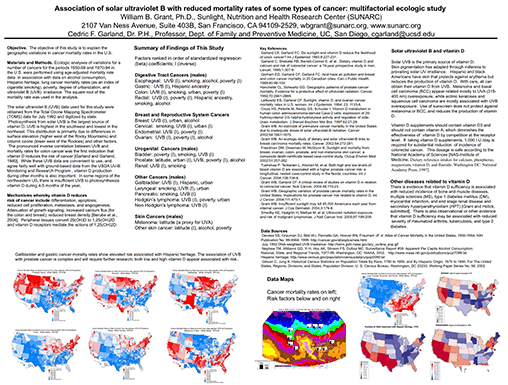
Vitamin D acceptance delayed by Big Pharma following the Disinformation Playbook
(OMNS Oct 1 2018) A "Disinformation Playbook" has been used for decades by corporations to delay government action on matters of public interest that would adversely affect their income and profit. Some well-known examples include the big tobacco companies, the coal and oil industries, the sugar industry, and the National Football League. The Union of Concerned Scientists has outlined five "pillars" of the Playbook [Disinformation Playbook], [Alvord 2017]. Big Pharma may be using the Playbook to slow the adoption of strong support for vitamin D. This article is the product of my further analysis.
http://orthomolecular.org/resources/omns/v14n22.shtml
Anticancer Res. 2018 Feb;38(2):1121-1136.
A Review of the Evidence Supporting the Vitamin D-Cancer Prevention Hypothesis in 2017.
Grant WB
Abstract
The vitamin D-cancer prevention hypothesis has been evaluated through several types of studies, including geographical ecological studies related to indices of solar ultraviolet-B (UVB) dose (the primary source of vitamin D for most people), observational studies related to UVB exposure or serum 25-hydroxyvitamin D [25(OH)D] concentrations, laboratory studies of mechanisms, and clinical trials. Each approach has strengths and limitations. Ecological studies indirectly measure vitamin D production and incorporate the assumption that vitamin D mediates the effect of UVB exposure. Findings from observational studies with long follow-up times are affected by changing 25(OH)D concentrations over time. Most clinical trials have been poorly designed and conducted, based largely on guidelines for pharmaceutical drugs rather than on nutrients. However, three clinical trials do support the hypothesis. In general, the totality of the evidence, as evaluated using Hill's criteria for causality in a biological system, supports the vitamin D-cancer prevention hypothesis.
The primary objective of SUNARC is to do research on and provide information on the prevention of chronic disease through lifestyle and dietary choices.
To this end, SUNARC will conduct research and provide information on (or advance the understanding and acceptance of) ultraviolet radiation, solar and artificial, as an important positive health factor, not only for musculoskeletal diseases, but also for chronic diseases such as autoimmune diseases, cancer, heart disease, multiple sclerosis, and neurological disorders.
The approach will be to have the most comprehensive summary of data, research findings, health policies, and links to information regarding the health benefits of ultraviolet radiation and vitamin D. In addition, SUNARC will conduct research and provide information about the role of nutrition as risk and risk reduction factors for chronic diseases such as Alzheimer's disease, autoimmune diseases, cancer, heart disease, musculoskeletal diseases, and rheumatoid arthritis.
William Grant has 142 publications on vitamin D listed at pubmed.gov as of December 31, 2011, and an additional 17 publications on ultraviolet radiation. To access many of them, go to www.pubmed.gov and enter “Grant W, vitamin D” in the search field. 47 have open access/free download; 21 are reviews. Another 5 papers on ultraviolet have open access. He publishes about 30 articles and letters to the editor each year, so check back often for important updates on ultraviolet B and vitamin D.
The health benefits of ultraviolet-B (UVB) irradiance and vitamin D are coming into sharper focus as more research results are published. There are now about 100 conditions and diseases linked to low serum 25-hydroxyvitamin D concentrations.
Documents on about 75 of these diseases and conditions are posted at www.vitamindcouncil.org/health-conditions
Sunlight, Nutrition and Health Research Center is a California non-profit charitable organization.
California Corporate number 264698; Federal Employer I.D. number 20-1115065.
